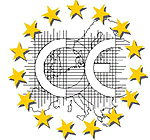Companies that have a quality management certificate in their possession demonstrate with this that they have an efficient organizational form and that they have low failure costs. Failure costs are the costs incurred due to organizational shortcomings within the company. The quality system makes no reference to the quality of the product. The quality certificate is only a recommendation for customers that their oder will be processed correctly and on time. In contrast to the quality system, the CE marking only indicates that the product complies with the essential requirements relating to safety, health, environment and consumer protection of the user.
Some directives explicity make use of a quality management system (ISO 9000) as part of the conformity assessment. Only in specific cases this is a requirement to comply with CE marking directives.
If a company wishes to provide the customer with assurance about the functional quality of the product, the company needs to obtain a voluntary quality inspection mark. The inspection mark guarantees that products will conform to safety and functional requirements over the long term. It is sometimes also the case that these products meet the essential requirements of European Directives. In such cases, little extra effort is required to meet CE marking requirements.
Monday, November 3, 2008
Subscribe to:
Post Comments (Atom)


No comments:
Post a Comment